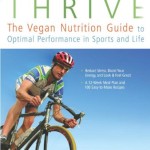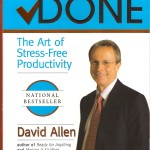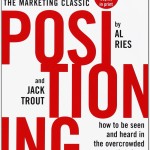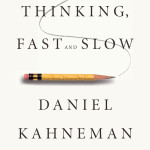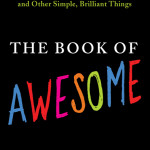“While you can’t control your experiences, you can control your explanations.”
A national bestseller, Authentic Happiness launched the revolutionary new science of Positive Psychology—and sparked a coast-to-coast debate on the nature of real happiness.
According to esteemed psychologist and bestselling author Martin Seligman, happiness is not the result of good genes or luck. Real, lasting happiness comes from focusing on one’s personal strengths rather than weaknesses—and working with them to improve all aspects of one’s life. Using practical exercises, brief tests, and a dynamic website program, Seligman shows readers how to identify their highest virtues and use them in ways they haven’t yet considered. Accessible and proven, Authentic Happinessis the most powerful work of popular psychology in years. [From: Amazon.com]
In this important, entertaining book, one of the world’s most celebrated psychologists, Martin Seligman, asserts that happiness can be learned and cultivated, and that everyone has the power to inject real joy into their lives. In “Authentic Happiness”, he describes the 24 strengths and virtues unique to the human psyche. Each of us, it seems, has at least five of these attributes, and can build on them to identify and develop to our maximum potential. By incorporating these strengths – which include kindness, originality, humour, optimism, curiosity, enthusiasm and generosity – into our everyday lives, he tells us, we can reach new levels of optimism, happiness and productivity. “Authentic Happiness” provides a variety of tests and unique assessment tools to enable readers to discover and deploy those strengths at work, in love and in raising children. By accessing the very best in ourselves, we can improve the world around us and achieve new and lasting levels of authentic contentment and joy.
[From: Amazon.co.uk]
“Success requires persistence, the ability to not give up in the face of failure. I believe that optimistic explanatory style is the key to persistence.”
Over a decade ago, Martin Seligman charted a new approach to living with “flexible optimism.” Now, in his most stimulating and persuasive book to date, the bestselling author of Learned Optimism introduces the revolutionary, scientifically based idea of “Positive Psychology.” Positive Psychology focuses on strengths rather than weaknesses, asserting that happiness is not the result of good genes or luck. Seligman teaches readers that happiness can be cultivated by identifying and using many of the strengths and traits that they already possess — including kindness, originality, humor, optimism, and generosity. By frequently calling upon their “signature strengths” in all the crucial realms of life, readers will not only develop natural buffers against misfortune and the experience of negative emotion, they will move their lives up to a new, more positive plane.
Drawing on groundbreaking psychological research, Seligman shows how Positive Psychology is shifting the profession’s paradigm away from its narrow-minded focus on pathology, victimology, and mental illness to positive emotion, virtue and strength, and positive institutions. Our signature strengths can be nurtured throughout our lives, with benefits to our health, relationships, and careers.
Seligman provides the Signature Strengths Survey along with a variety of brief tests that can be used to measure how much positive emotion readers experience, in order to help determine what their highest strengths are. The life-changing lesson of Authentic Happiness is that by identifying the very best in ourselves, we can improve the world around us and achieve new and sustainable levels of authentic contentment, gratification, and meaning. [From: Books.google.com]
“Curing the negatives does not produce the positives.”
Martin Seligman, former President of the APA, is one of the leaders, pioneers and prominent advocates of Positive Psychology. His Authentic Happiness was the first book to truly shape the science of Positive Psychology. Seligman explains that your enduring level of happiness is based on the Set Range of your biologically/geneticaly-set happiness level; Life Circumstances contribute in small part to happiness – money has little effect but marriage and living in a democracy seem to have more(?); Voluntary Control, what you can do to raise your happiness to the upper part of your set range. Seligman separates positive emotions into three temporal domains: Past (satisfaction, contentment, fulfillment, pride and serenity) – improved by accepting that negative experiences do not effect present and future, increasing gratitude and forgiving past wrongs; Present (joy, ecstasy, calm, zest, ebullience, pleasure and flow) – improved by focusing less on transitory pleasures (sensory delights (food, sex etc) and more on longer term gratifications (rewarding activities we lose ourselves in); Future (optimism, hope faith, trust) – improved by becoming more optimistic and hopeful. Seligman says Authentic Happiness comes from identifying and ultivating your Signature Strengths (1. Wisdom & Knowledge, 2. Courage, 3. Love & Humanity, 4. Justice, 5. Temperance, 6. Spirituality & Transcendence) and using them everyday in work, love, play and parenting. Seligman has an easy and personal style in this supurb and landmark book in the new science of happiness. [From: Simplywellbeing.com]
Happiness isn’t just a gift; it’s a skill that can be learned and cultivated. According to psychology professor Dr. Martin Seligman, everyone has the power to infuse real joy into his or her life. To teach ourselves happiness, he recommends that we identify and develop our personal “signature strengths.” By incorporating these attributes into the crucial arenas of our lives, we can enhance our lives and experience real fulfillment. This is an orthodox but sensible life-changing lesson. [From: Barnesandnoble.com]
“Habits of thinking need not be forever. One of the most significant findings in psychology in the last twenty years is that individuals can choose the way they think.”
In his latest user-friendly road map for human emotion, the author of the bestselling Learned Optimism proposes ratcheting the field of psychology to a new level. “Relieving the states that make life miserable… has made building the states that make life worth living less of a priority. The time has finally arrived for a science that seeks to understand positive emotion, build strength and virtue, and provide guideposts for finding what Aristotle called the `good life,’ ” writes Seligman. Thankfully, his lengthy homage to happiness may actually live up to the ambitious promise of its subtitle. Seligman doesn’t just preach the merits of happiness e.g., happy people are healthier, more productive and contentedly married than their unhappy counterparts but he also presents brief tests and even an interactive Web site (the launch date is set for mid-August) to help readers increase the happiness quotient in their own lives. Trying to fix weaknesses won’t help, he says; rather, incorporating strengths such as humor, originality and generosity into everyday interactions with people is a better way to achieve happiness. Skeptics will wonder whether it’s possible to learn happiness from a book. Their point may be valid, but Seligman certainly provides the attitude adjustment and practical tools (including self-tests and exercises) for charting the course. [From: Publishersweekly.com]
About the Author:
Seligman has written about positive psychology topics such as The Optimistic Child, Child’s Play, Learned Optimism, Authentic Happiness,” and in 2011, “Flourish.” [From: Goodreads.com]
“The genius of evolution lies in the dynamic tension between optimism and pessimism continually correcting each other.”
If you like this story, CLICK HERE to join the tribe of success-minded people just like you. You will love our weekly quick summaries of top stories, talks, books, movies, music and more with handy downloadable guides, cheat sheets, cliffs notes and quote books.
And, you can opt-out at any time – no strings, promise… CLICK HERE


